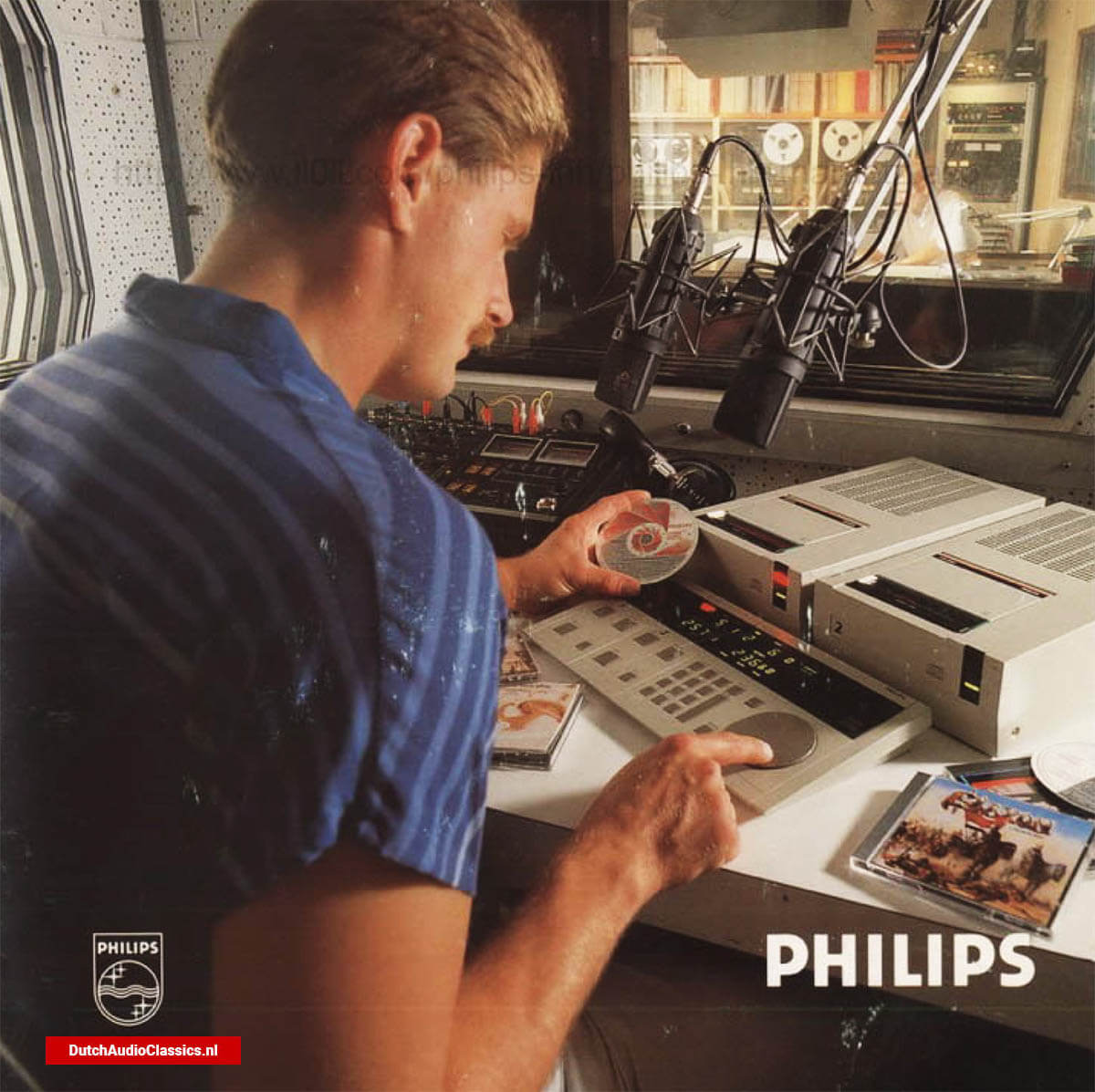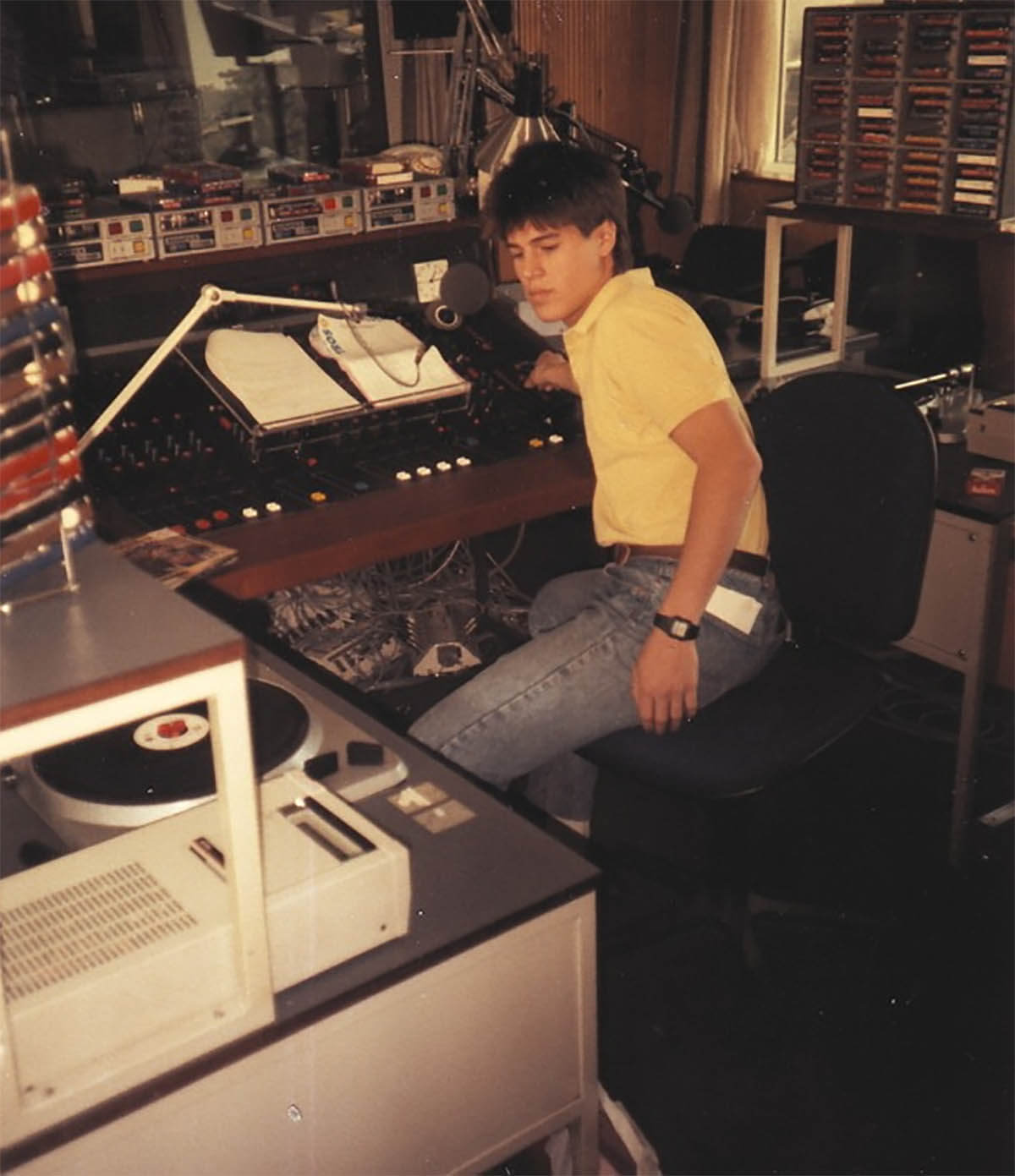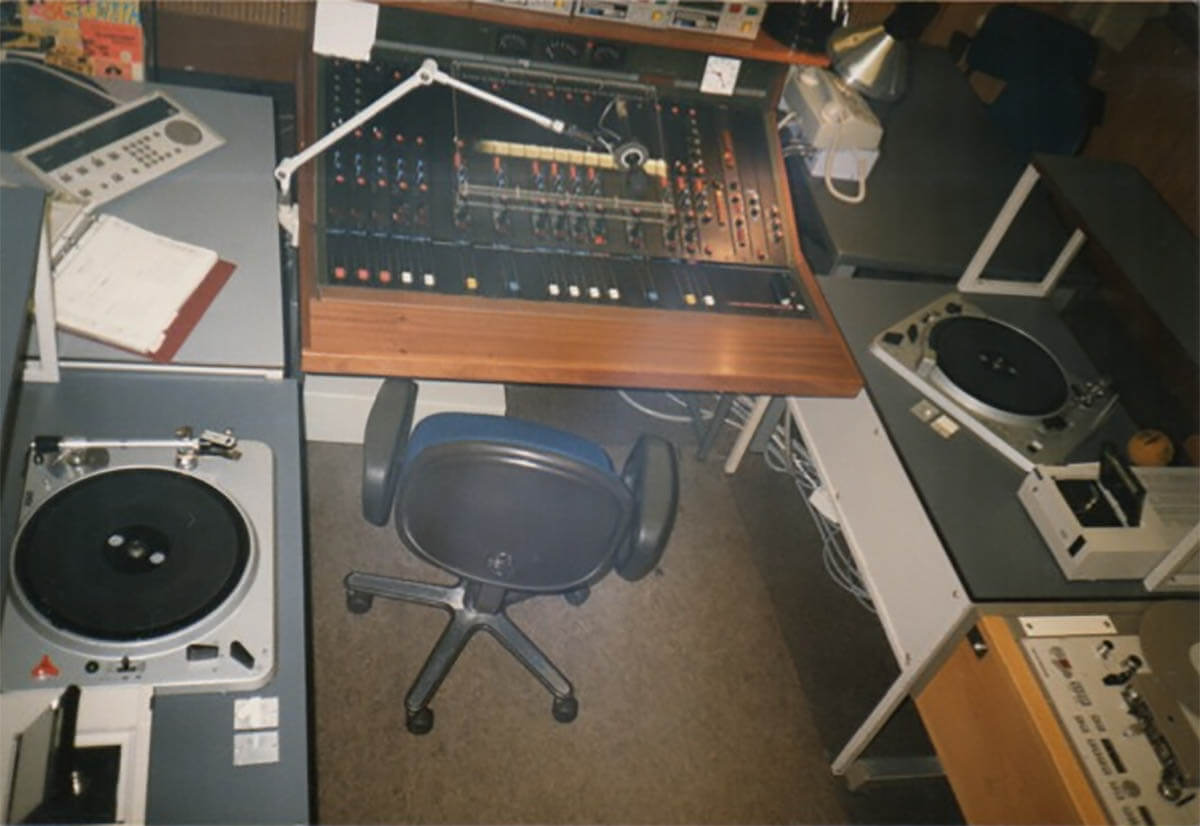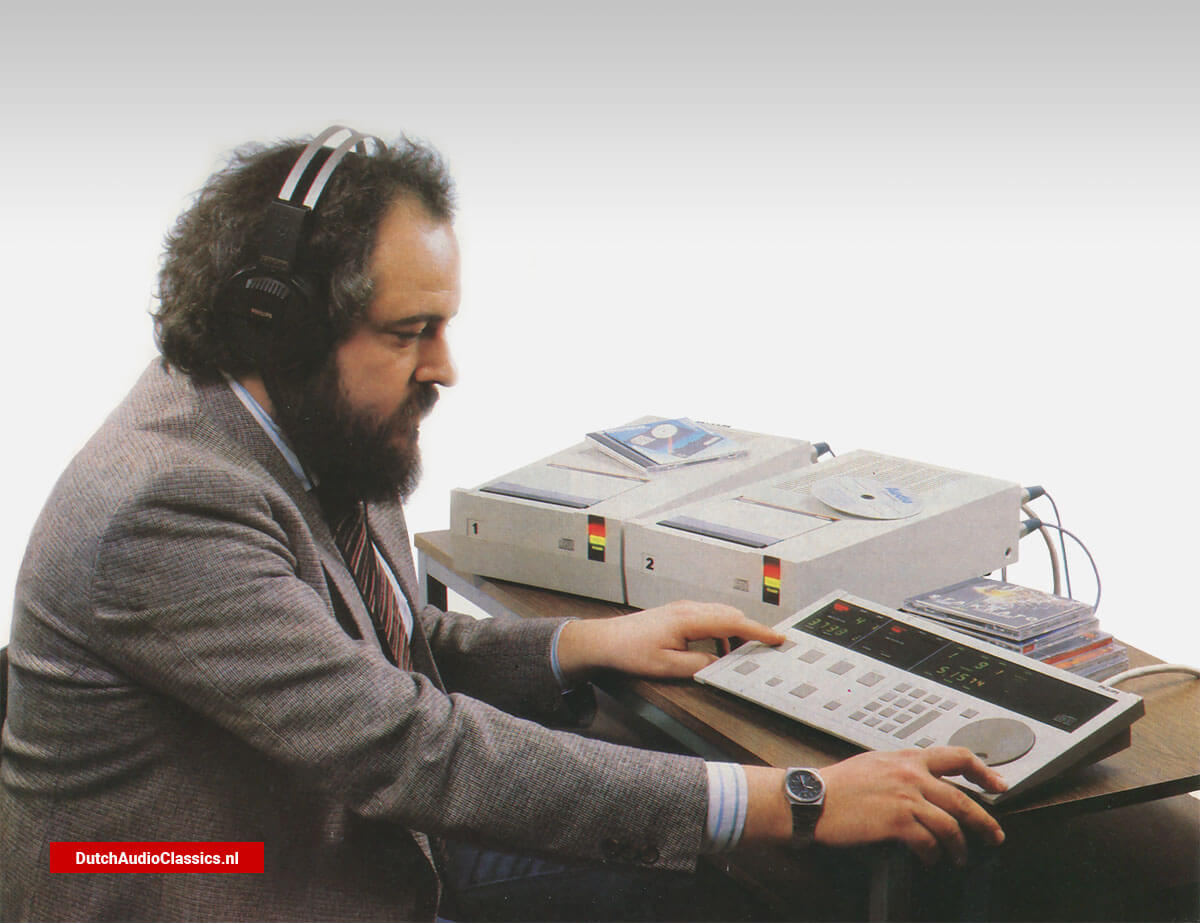March 1985
The Dutch inventor of the Compact Disc introduces the Professional LHH2000 Compact Disc player. The professional model for 35,000 Deutsche Mark is simply unbeatable in terms of operating convenience.
Desire for better sound quality
The CD has been swept over the Germany Broadcasters. Especially the disc jockeys increasingly use the compact disc instead of the time-honored analog disc when compiling their music programs.
![Philips LHH2000 broadcast cdplayer review]() In a compact form, the Philips professional player offers fantastic operating options.
In a compact form, the Philips professional player offers fantastic operating options.
The desire for better sound quality should be decisive for this, but also the prospect of comfortable, professional CD players that sound engineers and disc jockeys have so far only been dreaming of.
Ludicrous operating possibilities
This Compact Disc player for professionals is now being built by the CD inventor Philips. It is named LHH 2000 Professional and it is the final version of the prototype Philips LHH 0502.
The joy of the radio music makers is just as understandable as the envy of all private CD fans who hear about the ludicrous operating possibilities of the Philips professional LHH2000. The modular idea of Leo M. Greep, product manager of the "Optical Disc Mastering Group" and his men based on the LHH 2000, is particularly clever.

Modular setup
The basic version consists of a flat keyboard with an extensive, yellow-green shimmering display, various keys and a large controller as well as a CD player in the form of a card box. This single player version already costs 14,000 Deutsche Mark.
A control cable connects the keyboard and drive, which transfers all commands from the control buttons to the actual player. Incidentally, it dispenses with a drawer for the fastest possible operation and instead stores the CD in a hinged slot - because during the broadcast, it's about seconds.
In the first stage of expansion, a second player with an additional control console that can be plugged into the keyboard is added for 10 500 Deutsche Mark. In the 35,000 Deutsche Mark maximum expansion level, which is the equivalent of a mid-range car, the LHH 2000 Professional Compact Disc player consists of three drives and an extended keyboard. But what does disc jockey get for this hefty price?
An extremely robust, reliable, and excellently manufactured tool
First of all, an extremely robust, reliable, and excellently manufactured tool. Service friendliness was at the top of the list of requirements. All components, even the converters, are accommodated on plug-in cards. If a defect occurs, the in-house technician changes a complete circuit board at lightning speed - and the program continues.
![Philips LHH2000 broadcast cdplayer review]() All components, even the converters, are accommodated on plug-in cards. If a defect occurs, the in-house technician changes a complete circuit board at lightning speed - and the program continues.
All components, even the converters, are accommodated on plug-in cards. If a defect occurs, the in-house technician changes a complete circuit board at lightning speed - and the program continues.
The highlight of the LHH 2000, which most of the stations order with two units, is the keyboard, the command center of the music machine.
Managing CD information
The programming unit manages all information about inserted CDs. To the left of this are up to three control panels for the drives. Drive 1 is in first place in the hierarchy, drive 2 in second place. The Disc-Jockey loads both players with a CD, the drive "1" with the disc that is to be sent first. The drives first query and divide all information about the title and playing time from the CDs In the corresponding glare-free display fields of the drive controls, the time and track displays including the pauses light up on a dark background.
If the jockey wants to play the seventh track on the first CD, he transfers the information from this CD into his programming section on the keyboard; He selects title seven using the numeric keypad and confirms with the "Return" key on the control unit. The second drive is then programmed in the same way - in fractions of a second.
 Martijn Krabbé at the Dutch Hilversum 3 studio. Next to each EMT turntable a Philips LHH2000 broadcast cdplayer is showing.
Martijn Krabbé at the Dutch Hilversum 3 studio. Next to each EMT turntable a Philips LHH2000 broadcast cdplayer is showing.
Pulls the Disc-Jockey up the controller for player "1" on his mixer, the drive starts automatically with the selected title. The status display on the keyboard and on the player itself changes from "Ready" to "On Air", and the music changes the broadcaster so far, so beautiful. But that's not all.
How long is the pause before the second, programmed title? Just press the start button on the control panel. Player "1" is still transmitting and the assigned time display on the keyboard continues to count down minutes and seconds of the first track. The jockey does not like the long pause at the beginning of the track in drive "2". He switches to "Real Time Left" mode and the display shows him the actual music playing time without a break.
 The first MBI in the Dutch Hilversum 3 studio, showing 2 Philips LHH2000 broadcast cdplayers.
The first MBI in the Dutch Hilversum 3 studio, showing 2 Philips LHH2000 broadcast cdplayers.
Another trial start shows that there is still too much idle time between the two titles. Now the jockey changes to the so-called dial control, a flywheel with a finger recess. With its help, any position on the CD can be reached, of course by listening.
Has the correct start measure been found: A brief acknowledgment with the "Return" key is sufficient, and the built-in microprocessor remembers the position with one frame (0.013 seconds). The same applies to the final measure.
![Philips LHH2000 broadcast cdplayer - studio photo]() An magazine ad from November 1986, showing double Philips LHH2000 broadcast cdplayers in studio setting.
An magazine ad from November 1986, showing double Philips LHH2000 broadcast cdplayers in studio setting.
Inexhaustible programming possibilities
But the programming possibilities of the LHH 2000 are almost inexhaustible. Starting from "Auto-Mode" - after the programmed CD track in the first player, player number two starts automatically - up to the programming of the search speed and remaining playing time, which end the last music beat before the news gong , the LHH 2000 makes practically everything possible that saves musicians time and nerves.
There is no question that these possibilities expand when three drives are in operation. The radio moderator should then of course be prepared for the fact that he must first practice vigorously.
In a few years, it seems certain that the Disc-Jockeys share of radio broadcasts will come from the CD. Not just because of the sound quality.
 In a compact form, the Philips professional player offers fantastic operating options.
In a compact form, the Philips professional player offers fantastic operating options.

 All components, even the converters, are accommodated on plug-in cards. If a defect occurs, the in-house technician changes a complete circuit board at lightning speed - and the program continues.
All components, even the converters, are accommodated on plug-in cards. If a defect occurs, the in-house technician changes a complete circuit board at lightning speed - and the program continues.
 Martijn Krabbé at the Dutch Hilversum 3 studio. Next to each EMT turntable a Philips LHH2000 broadcast cdplayer is showing.
Martijn Krabbé at the Dutch Hilversum 3 studio. Next to each EMT turntable a Philips LHH2000 broadcast cdplayer is showing.
 The first MBI in the Dutch Hilversum 3 studio, showing 2 Philips LHH2000 broadcast cdplayers.
The first MBI in the Dutch Hilversum 3 studio, showing 2 Philips LHH2000 broadcast cdplayers.
 An magazine ad from November 1986, showing double Philips LHH2000 broadcast cdplayers in studio setting.
An magazine ad from November 1986, showing double Philips LHH2000 broadcast cdplayers in studio setting.